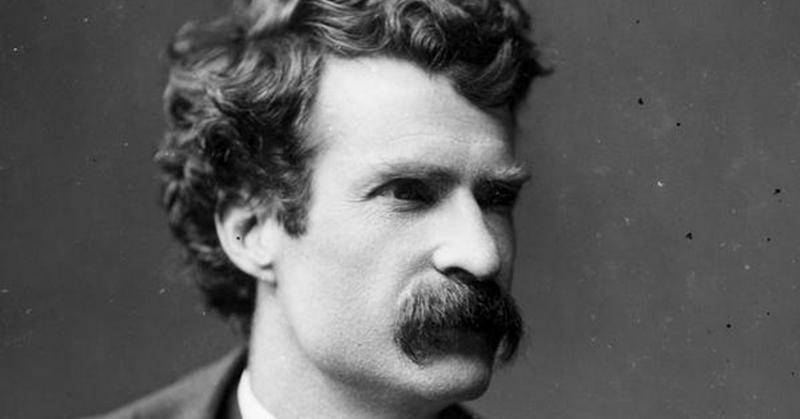5 Fun Facts About Mark Twain
By | December 11, 2021

That Wasn't Really His Name
Born in Missouri on November 30, 1835, the young Samuel Langhorne Clemens was a great lover of science and literature, but despite his passions, he never did well in school. His formal education ended in the fifth grade when his father, a judge, died of pneumonia and Clemens took an apprenticeship at the local newspaper to provide for his family.
Even as he worked as a miner and steamboat pilot, though, Clemens continued visiting libraries and reading voraciously. When he eventually became a journalist, Clemens decided to take up the moniker of a writer who had died in 1869. Mark Twain, as he became known, was notably an old-fashioned way of saying the water was deep enough for a boat to travel safely through.

He Was A Confederate
Clemens was raised in the slave state of Missouri, had an uncle who owned slaves, and once even saw a man kill his slave for "merely doing something awkward." Despite that, a 25-year-old Clemens joined a pro-Confederate militia almost immediately after the outbreak of the Civil War. However, he lasted a short two weeks before training proved too hard so he gave up and instead moved to the West.
But He Loved Ulysses S. Grant
Later in life, Clemens sang a different tune. Much of his writings transformed from racist to anti-slavery, and he even struck up a friendship with famed Union general Ulysses S. Grant, who he first met as a lowly journalist in 1867. "I shook hands [with him], and then there was a pause and silence," he later recalled. "I couldn't think of anything to say. So I merely looked into the General's grim, immovable countenance a moment or two in silence, and then I said, 'Mr. President, I am embarrassed—are you?'"
Despite the uncharacteristic display of verbal clumsiness, Grant took well to Clemens and invited him to a dinner reception, where he teased the writer by greeting him, "Mr. Clemens, I am not embarrassed, are you?" Never a savvy businessman, Grant struggled financially after he left office, and when the former president became ill from cancer, Clemens all but saved his family from total ruin when he stepped in to help him with his autobiography.

He Wasn't Great With Money, Either
Though a brilliant writer, Clemens didn't tend to do well on the business side of things. His worst mistake was investing in an automatic typesetting machine, which may have sounded like a dream to a writer but failed miserably and sunk Clemens into a staggering $200,000 of debt (about $6 million today). He certainly would have been better off investing in the telephone, an opportunity he was offered but declined. Maybe he was just too ahead of his time. His elastic-waist pants have done great in the intervening decades.
Huck Finn Was A Real Person
In the town where he grew up, Clemens knew a boy named Tom Blankenship, who was "ignorant, unwashed, [and] insufficiently fed, but he had as good a heart as ever any boy had." He felt for the child, who was poor and neglected by his alcoholic father, and that sentiment stayed with him even in adulthood, after the two lost touch. It's not known for sure what happened to Blankenship, with rumors ranging from trouble with the law to success in it as a justice of the peace, but he most certainly lives on in one of the most successful books in American literature.

